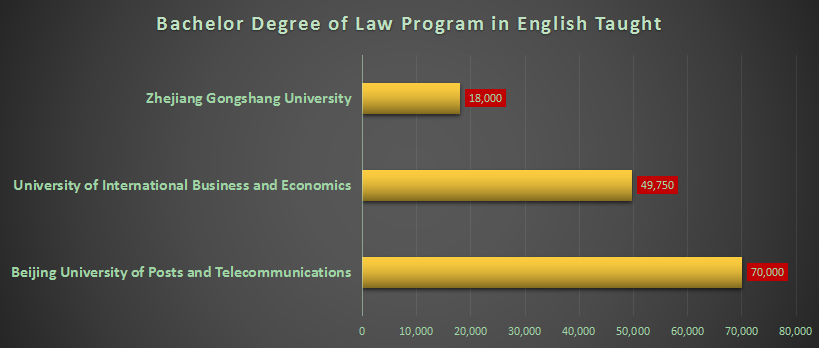What?
Law, or legal studies, comes into contact with almost every area of human life, touching upon issues relating to business, economics, politics, the environment, human rights, international relations and trade. It is telling that the first academic degrees developed were all related to law. As a law student, you can expect to learn how to tackle some of the most problematic – indeed, often seemingly irresolvable – conflicts and issues in modern society and morality. In providing a framework through which to examine and understand different societies and cultures, law degrees are a useful way to prepare not only for specific legal careers, but for a broad range of professional roles – and indeed, for life in general.
Law degrees have always been among the most sought-after and widely respected courses to study at university. For many, a law degree is the first step along the path to a career in the legal sector, often followed by the further study and training needed to become a practicing solicitor or barrister. However, this is certainly not the only reason to study law at university. Law degrees are notoriously challenging, and for many students, the attraction lies in the unique combination of human interest and intellectual stimulation provided.
Like most academic degrees, law programs start with compulsory core courses, and more opportunities to choose law topics tailored to a particular career path later on. Teaching is through a combination of lectures, seminars, group work, presentations, class debates and ‘mooting sessions’ – practical law training in a courtroom setting to help students master important legal skills such as research and analysis, public speaking and argument formation.
Some institutions allow law students to spend a year studying abroad, particularly if they are combining law with a foreign language. Some may also provide students with the chance to work pro bono (voluntarily) with real-life clients, as a way to gain invaluable experience and gaining legal skills that will help when applying for positions later on.
 |
 |
 |
 |
|
| Tuition (in USD/year) | 2K-5K |
9K-32K |
10K-13K |
0K-20K |
| Duration | 4-6 |
4 |
3-4 |
3-4 |
| Degree after Graduation | Bachelor |
Bachelor |
Bachelor |
Bachelor |
| Language Requirements | Chinese or English |
English |
English |
Germany&English |
Where?
Why?
Top 5 Law Studies in China

|

|

|

|

|
Detailed Comparison of the Top 5

-
TOP 1
Peking University
- Tuition: 26,000 RMB per year
- Location: Beijing
- Duration: 4 years
- Language requirement: Chinese, HSK 5
- Features:
Law School ranking No1. in China and Top 3 in Asia by QS
Good conditions and excellent faculties for academic study;
Exchange and cooperation with world-class universities, for example, Stanford University, Columbia University, University of Luxembourg, and with international organizations, such as WTO, ESCAP.
Detailed Comparison of the Top 5

-
TOP 2
China University of Political Science and Law
- Tuition: 20,000 RMB per year
- Location: Beijing
- Duration: 4 years
- Language requirement: Chinese, HSK 4
- Features:
Characterized by centering on law, accompanied with other disciplines
The lead in China’s jurisprudence theoretical innovation and conceptual updating; having international cooperation agreements with 119 world-famous universities in 33 countries
Detailed Comparison of the Top 5

-
TOP 3
Wuhan University
- Tuition: 20,000 RMB per year
- Location:Wuhan
- Duration: 4 years
- Language requirement: Chinese, HSK 5
- Features:
The Law School having a history more than 100 years
Strong academic teams, obvious talent advantage
One of the "5 Colleges and 4 Departments", the representation of the highest level of education of law
International Private Law and Environment Law ranking No. 1 in China
Balanced discipline development
Detailed Comparison of the Top 5

-
TOP 4
Jilin University
- Tuition: 17,000 RMB per year
- Location: Jilin
- Duration: 4 years
- Language requirement: Chinese, HSK 3
- Features:
Lower Chinese language requirement
Lower affordable tuition
first-class teaching system for international students
One of the earliest established schools in China
urisprudence and Criminal Law are national key disciplines.
Detailed Comparison of the Top 5

-
TOP 5
Fudan University
- Tuition: 23,000 RMB per year
- Location: Shanghai
- Duration: 4 years
- Language requirement: Chinese, having an examination
- Features:
Can apply for LL.M. after graduation of bachelor
The oldest existing law school in east and south China
Constantly recruited outstanding legal scholars
Having English-taught master program of Chinese Business Law for 2 years.
Ascending tuition fees of the Top 3


